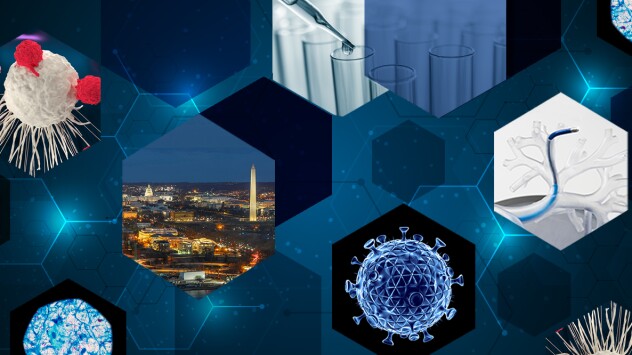- Home
- Lung cancer
Lung cancer
Could we be on our way to eliminating cancer for good?
What once seemed like an unattainable goal may soon be within our grasp. Learn how Johnson & Johnson is working toward its vision to create a world without cancer.
“Lung cancer wasn’t even on my radar. Then I was diagnosed.”
The disease is often detected late—which can have fatal consequences. But thanks to innovations in diagnostic tools, there’s a way to catch lung cancer earlier. Here’s how early detection saved one woman’s life.
What is a gene mutation?
Experts aren’t sure why, but sometimes changes in DNA can trigger cancer to grow and spread. For DNA Day learn all about gene mutations—and Johnson & Johnson’s work developing new therapies to target these specific types of cancer.
By the numbers: Who gets lung cancer?
Each year, more people die of lung cancer than colon, breast and prostate cancers combined. Learn how Johnson & Johnson is dedicated to improving outcomes by integrating the company’s MedTech and Innovative Medicine expertise.
4 questions for a data science innovator
Hidden in large amounts of digital information—such as anonymized medical records—may be the keys to transforming the future of healthcare. Troy C. Sarich, Ph.D., Johnson & Johnson’s Chief Commercial Data Science Officer, shares how the company is carefully collecting, analyzing and harnessing this information to improve the health of people everywhere.
“Our goal is to prevent lung cancer from happening in the first place”
Artificial intelligence-enabled mobile screening units. Nasal swab genomic tests. Diagnostics that pair the right treatment with the right patient. For Healthy Lung Month, Johnson & Johnson researchers share the progress that’s being made to thwart the #1 cancer killer.
The quest to help patients with a deadly type of lung cancer
Despite obstacles and setbacks, these researchers vowed to never give up working to develop a new treatment for non-small cell lung cancer. For Lung Cancer Awareness Month, they share their journey.
An expert explains the latest good—yes, good!—news about lung cancer
A new report from the American Cancer Society sheds light on declining death rates from cancer—especially lung cancer. We asked an expert on the disease to break down the data, and share what’s to come in better detecting and preventing it.
I have a vision for helping advance healthcare: Meet 6 leaders working on inspiring innovations in 2020
From robotics solutions for orthopedic surgery to the potential to bring new hope to patients living with multiple myeloma through CAR-T, these are just some of the cutting-edge projects that these visionaries think could potentially help propel healthcare forward around the globe.
New study shows researchers may be one step closer to intercepting lung cancer earlier
A team of scientists, including those from Janssen and the Lung Cancer Initiative at Johnson & Johnson, found that biomarkers related to the immune system may be able to aid doctors in identifying high-risk lung cancer patients—and treating them—at the earliest stage of the disease.









